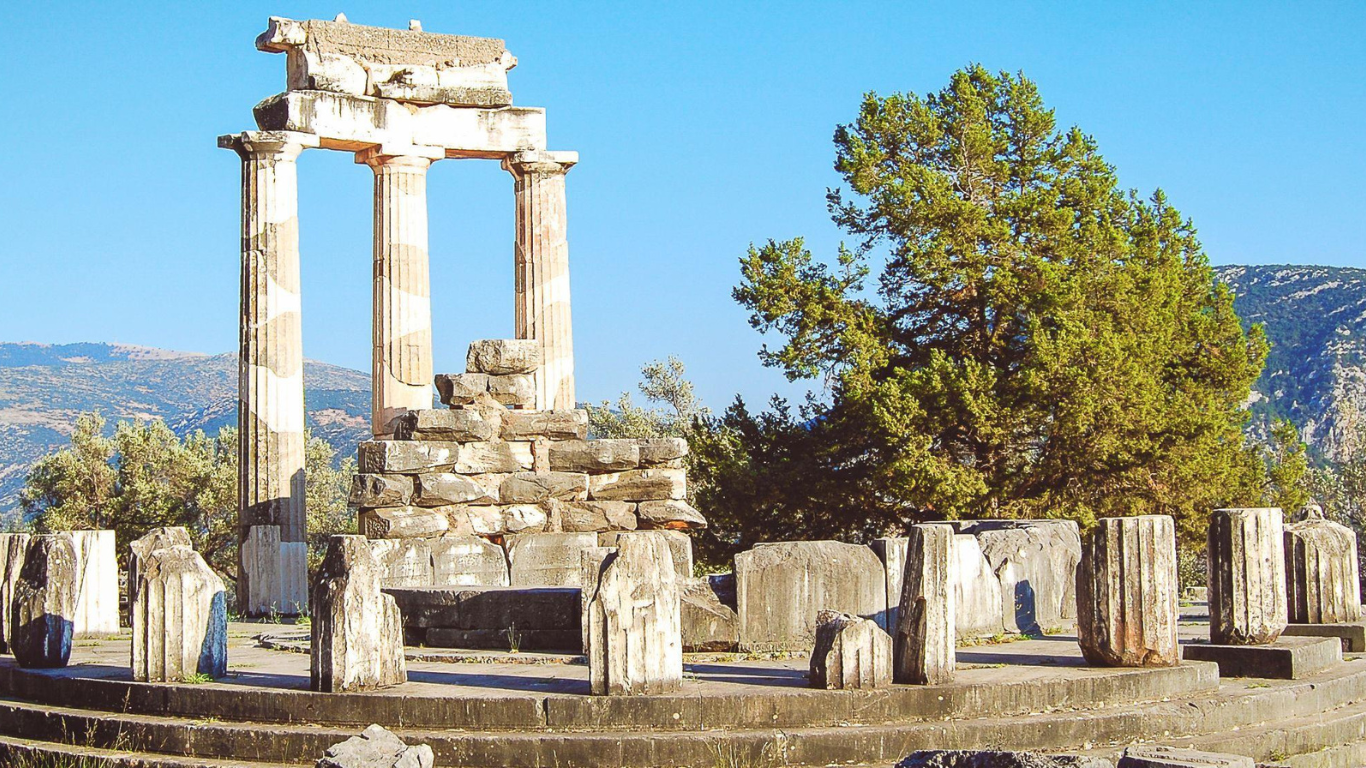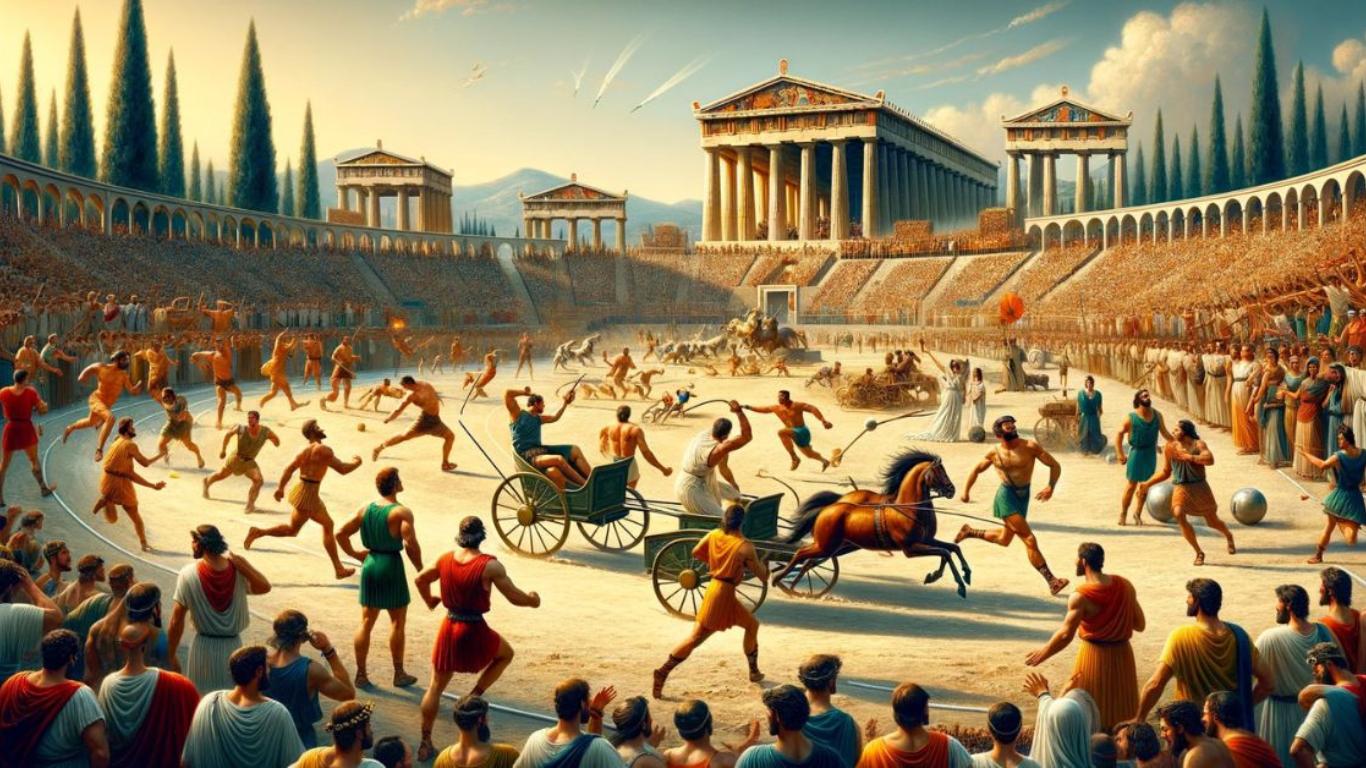The Olympic Games is an international tournament where sports and culture meet. The history of the Olympic games dates back over 2,000 years ago to Peloponnese, Ancient Greece. The sports competition was held after four years at the Olympia, which the name Olympic Games was derived from. The exact year or time when the games started is not known, however, some written sources cite 776 BC. Anyway, let’s have a look at everything about the Olympic Games in brief. You will learn at length how and when the Olympic games first started and how the format has changed.
Bet On Paris Olympic Games with Bet365
When Did the Olympics First Appear?
The exact year when the Olympics started is unknown. According to the International Olympic Committee, the first recorded Olympic Games took place at Olympia in 77b BC in the Greek City of Elis. However, most people believe at that time the games were about 500 years old.
The ancient Olympic games that took place every four years were part of a religious festival honoring Zeus (Greek gods and goddesses). In the eighth century BC, participants came from many Greek cities. The competition only featured foot races but other events like boxing, wrestling, horse racing, and military competitions.
History of the Ancient Olympic Games
The ancient Olympic Games date back to 776 BC and only included one game-running competition. The games were carried out in Olympia, Greece in honor of Zeus. More than 50,000 people from Greece came to watch and participate in the events. The games united the cities and only men were allowed to participate.
With time, other competitions were added but the Olympic Games did not feature team tournaments. The athletes also competed naked in most disciplines. The history of the Olympics briefly highlights these sports that were added:
- 400-meter dash;
- 192-meter sprint;
- Wrestling;
- Pentathlon;
- Chariot racing;
- Boxing;
- Dolichos;
- Pankration- a martial art that includes boxing, wrestling, and street fighting;
- Long jump, javelin, wrestling, running, and discus throw all as a multi-event;
In the ancient Olympics, the games were not divided into summer or winter games. The games took place every four years (Olympiad). The games were played for more than 12 centuries until they were banned by Emperor Theodosius in 393 AD because of promoting paganism.

When Was the Olympics Revived?
Several developments and initiatives tried to re-establish an international sports event in the 18th century. However, the attempts failed because there was no coordination between worldwide sporting movements.
Pierre de Coubertin, the co-founder of the International Olympic Committee came up with the idea of reviving the Olympic Games in 1894. In 1896 the first revised Olympic Games took place in Athens, Greece. This was the start of the international competitions we have today.
Paris hosted the second Olympic Games in 1900 where women were allowed to participate. Out of the 997 athletes, 22 women were competing in tennis, golf, croquet, sailing, and equestrian events.
Bet On Paris Olympic Games with Bet365How the Olympics Developed in the 20th Century
The Olympic games saw a huge development in the 20th century, transitioning into a global event we have in the modern world. After the games were revised in 1896, the games started to be numbered, and the first games took place in Athens, the second in Paris, the third in America, and so on. Even the games that did not happen in 1916, 1940, and 1994 because of World I and World War II were numbered.
The official Olympic symbol is five intertwined circles in red, green, black, yellow, and blue colors representing the unity of athletes from the five continents. The first Winter Olympics took place in 1924 at Chamonix, France. Some of the featured games included ice hockey, skiing, and figure skating. The first Olympic flame was introduced in 1928 at the opening ceremony.
In 1936 during the Berlin Olympics, the games were the first to be broadcast on TV. During the 20th century, the Olympic games also experienced inclusivity and gender equality. Athletes from diverse backgrounds were included and women competed for the first time in the 1900 Paris Olympics. Other technological advancements that took place included athlete training, organization of games, and worldwide broadcasting, making many people access the Olympic games.
Olympic Games Today
The Olympic Games today represent international unity, cultural diversity, and the celebration of athlete's skills. The Olympic Charter that was approved in 1894 determines the rules of the modern Olympics. The charter states that "unite athletes of all countries in fair and equal competitions. No discrimination is allowed with respect to countries or individuals on racial, religious or political grounds."
The International Olympic Committee determines the venue of the Olympics. The Olympic games last approximately 16-18 days. The games are contested between individual athletes as compared to national teams. The Olympic games also feature a medal count, which has been happening since 1988. The medal count is distributed in places of national teams depending on the gold medals, silver medals and bronze medals.
Summer Olympics Games
The Summer Olympics games take place in the first year of the 4-year Olympic period. This has been happening since 1896. Today, the Summer Olympic Games include:
- Archery;
- Artistic Gymnastics;
- Athletics;
- Badminton;
- Baseball;
- Basketball;
- Boxing;
- Canoeing;
- Cycling;
- Diving;
- Equestrian Sports;
- Fencing;
- Field Hockey;
- Football;
- Golf;
- Handball;
- Judo;
- Modern Pentathlon;
- Rhythmic Gymnastics. Rowing;
- Rugby;
- Sailing;
- Shooting;
- Softball;
- Swimming;
- Synchronized Swimming;
- Table Tennis;
- Taekwondo;
- Tennis;
- Trampoline Diving;
- Triathlon;
- Volleyball;
- Water Polo;
- Weightlifting;
- Wrestling;
Winter Olympic Games
The Winter Olympics started in 1924 and they took place the same year as the Summer Olympics. From 1994, the games were moved up by two years. The Winter Olympic Games today include:
- Alpine Skiing;
- Biathlon;
- Bobsleigh;
- Cross-Country Skiing;
- Curling Figure Skating;
- Freestyle;
- Ice Hockey;
- Luge;
- Nordic Combined;
- Short Track;
- Skeleton;
- Ski Jumping;
- Snowboarding;
- Speed Skating;
















